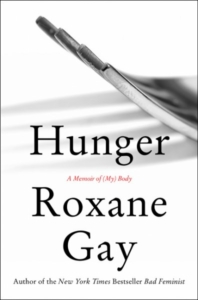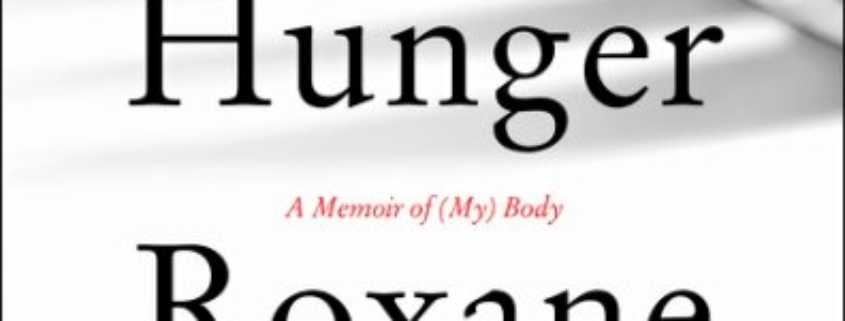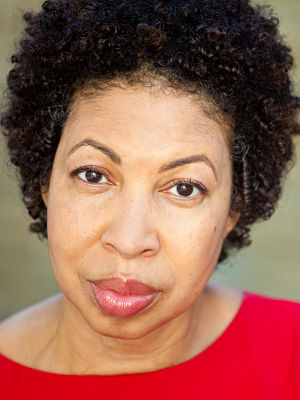Writers Read: Hunger by Roxane Gay
 Roxane Gay’s Hunger is a powerful memoir that depicts a very personal narrative while also serving as a work of criticism, exploring society’s inability to see or accommodate the needs of the extremely obese. Her examples range from descriptions of public and private erasure, the dearth of public accommodation, and so much more.
Roxane Gay’s Hunger is a powerful memoir that depicts a very personal narrative while also serving as a work of criticism, exploring society’s inability to see or accommodate the needs of the extremely obese. Her examples range from descriptions of public and private erasure, the dearth of public accommodation, and so much more.
In simple clear prose, Gay declares what happened to her twelve-year-old self—a vicious gang rape that left her wounded, altering the trajectory of her life. At first there is a reticence in telling the story of the rape. It’s as if Gay wants to say: “Okay, okay, I’m almost ready. I’ll tell you, just give me a minute.” Once she does tell her truth, Gay goes on to examine her own actions and their consequences:
“I am trapped in a cage” (17).
The cage is her body. She is not fine with her body: “I am not comfortable in my body” (18).
She sees her body as a crime scene, herself as both the perpetrator and the victim. She begins to feel herself to be nothing because she has been treated as nothing: “Those boys treated me like nothing, so I became nothing” (45).
Gay turns her body into a fortress for her own self-protection. But there are consequences. Gay declares that the bigger you are the less you are seen. She speaks of the toll her fatness takes on her personal health, relationships, and the public disgust and disregard she must endure because of her condition. She explores the cycle of shame that leads her further down the road of disordered eating, self-destructive romantic entanglements, and family estrangements.
In her ruthlessly honest telling, Gay reveals a spectrum of human dysfunction as it relates to obesity. This in itself is a service. The revelation of her own suffering provides a window into which the individual reader might find parts of themself. One’s personal challenge does not need to be as extreme as the narrator’s to glimpse a personal truth, or the place where the reader’s particular dysfunction might reside on the spectrum. These revelations are made possible because of the narrator’s willingness to share her deepest and darkest secrets and her ability to then, with ruthless honestly, reflect upon those secrets. This is also what makes memoir the literary genre of our time.
The theme of hunger is explored in its many ways. First, there is the ravenous hunger of a young woman attempting to protect herself—through food—from the gaze and violence of men. There is the hunger for love and affection, for acceptance, for touch, to be seen and heard, for validation and respect, for sustenance, for sex, for equality, kindness, pain, and punishment. There is the hunger for adequate public accommodations, the hunger to be closer to her family, the hunger for thinness. Gay the sociologist uses her own experience to examine the human condition.

Roxane Gay
Hunger is a meditation on what Gay did to herself and why. It’s a memoir of reflection.
Chapter eighty-four in particular must have been cathartic to write. The chapter is an exploration into the life of the boy (now an adult man) who orchestrated and helped commit the crime against her. Speaking so clearly and bravely of her abuser is a declaration of being, and a taking back of her own life.
(They say that revenge is a poor reason to write a memoir. This is not a revenge memoir, but I can’t help but wonder if her perpetrator is haunted by his actions. I hope that he is.)
Hunger is also a memoir of healing and of growth and empathy: “I am taking small steps toward the life I want” (293).
And toward the end of the work the reader can feel how Gay has begun to heal: “My body and the experience of moving through the world in this body has informed by feminism in unexpected ways. Living in my body has expanded my empathy for other people and the truths of their bodies” (297).
Gay, Roxane. Hunger: A Memoir of (My) Body. Harper, 2017.






